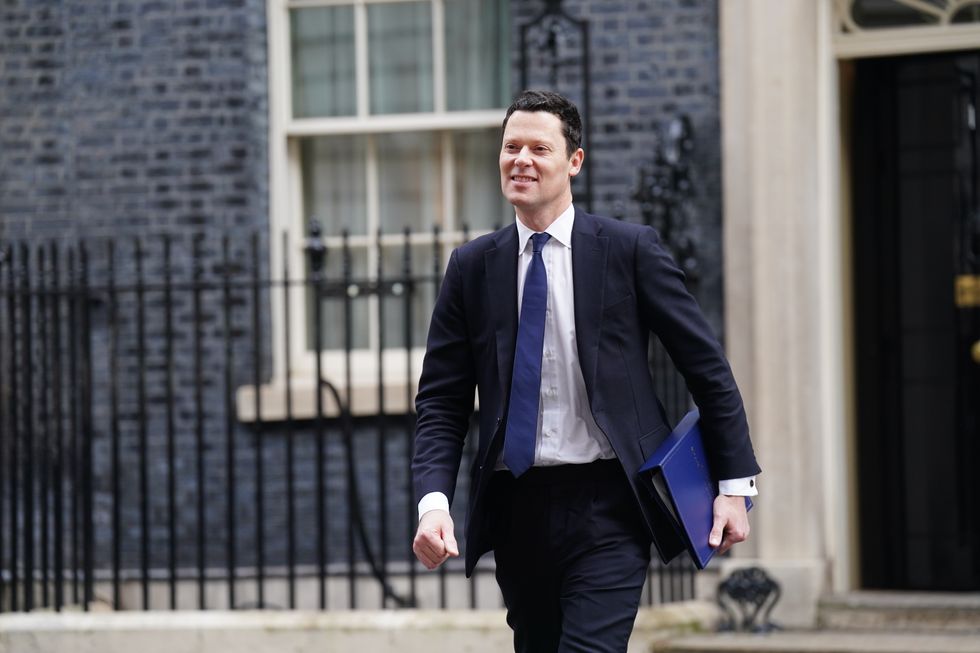
According to Justice Secretary Alex Chalk, the Government’s flagship “Criminal Justice Bill” was designed to beef up punishment for the most ruthless of criminals, empower the police and keep neighbourhoods safe.
But since it was first introduced to the House of Commons back in November, it has been through all sorts of unexpected iterations.
Various MPs and Peers from across the political spectrum have “hijacked” the Bill – mainly with attempts to push through changes to the Abortion Act via the back door.
It is often said in Britain, unlike in America, the question of abortion is “settled”. And it is true that there is very little appetite to make direct changes to the Abortion Act of 1967, given that doing so would open a culture war can of worms similar to the Roe v Wade question that has ripped apart America.

But of course, in the half-century or so since the Abortion Act was written, medicine, science and even the concept of criminality have all drastically changed. So it is perhaps little wonder that there are parliamentarians on both sides of the abortion debate who feel uncomfortable with the law as it stands.
There will likely be dozens of amendments to the Bill, but the three which will probably be voted on – and stand a chance of passing – are as follows.
1. Baroness Caroline Ansell has tabled an amendment which would lower the gestational age at which a woman can get an abortion from 24 weeks to 22 weeks. The logic behind the amendment, which is backed by a group of 25 cross party MPs, is that the 24-week abortion limit is now beyond the point when many babies survive and double that of the most common time limit among European Union countries.
These MPs also point out that it represents a contradiction at the heart of Britain’s abortion law: theoretically, in one room in a hospital a team of doctors could be working round the clock to save the life of a baby born at 23 weeks, while down the corridor, another team of doctors could be ending the life of a “foetus” of the same gestational age.
POLITICS LATEST:
- Rishi Sunak would win a confidence vote 'by a country mile' claims Esther McVey
- Lords inflict fresh defeat on Sunak's Rwanda plan as Bill set to be delayed for another MONTH
- Penny Mordaunt blasted by Esther McVey: 'She had her chance, she didn't win!'
2. Liam Fox, former minister, is attempting to abolish rules allowing abortions up to the point of birth for a foetus diagnosed with Down’s syndrome.
He says the change in the law would stop people with Down’s syndrome being treated as second-class citizens, a situation he described as an “absolutely utter travesty”.
This amendment has also been backed by MPs from all the main parties.
3. On the other side of the argument, Labour MP Diana Johnson has tabled an amendment which would stop anyone facing prosecution for ending their own pregnancy in England and Wales – essentially removing the issue of abortion from the criminal sphere.
Proponents of this amendment, including Health Secretary Victoria Atkins, argue that it is extremely unusual for anyone to end their pregnancy outside the law, but on the rare occasions when it does happen, it is distressing for everyone involved.
They suggest that women who do choose to end their pregnancy beyond the legal limit should not be treated as criminals, as often the situation is very complex. But those who have opposed the change argue that it would pave the way to legalising abortion up until birth, and could mean women in troubling circumstances end up waiting until the later stages of pregnancy to procure an abortion – when the procedure is less safe.

All three of these amendments will be debated when the Criminal Justice Bill returns to the House of Commons after the Easter recess. And it is very possible that all three pass. For the first time in decades, we could be about to see radical changes to British abortion law.
from GB News https://ift.tt/poZgWbc



0 Comments